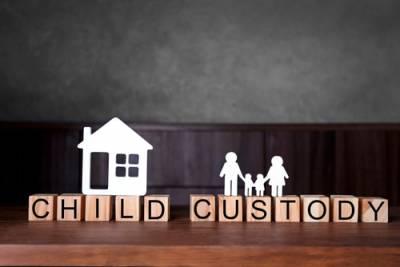 Free consultation
Free consultation630-953-3000
Your Voice Matters
 Throughout the United States, conventional gender roles have essentially been nixed as it pertains to the family unit. Now there are more bread-winning wives and thousands of stay-at-home fathers. Yet still, it can be difficult for divorcing fathers to receive the treatment they deserve throughout the legal process. Whether your issues revolve around securing financial support or alimony from your former spouse or gaining custody of your children, a father needs to be diligently prepared as they get ready for court. If you are a father preparing for a divorce, speak with a skilled attorney immediately.
Throughout the United States, conventional gender roles have essentially been nixed as it pertains to the family unit. Now there are more bread-winning wives and thousands of stay-at-home fathers. Yet still, it can be difficult for divorcing fathers to receive the treatment they deserve throughout the legal process. Whether your issues revolve around securing financial support or alimony from your former spouse or gaining custody of your children, a father needs to be diligently prepared as they get ready for court. If you are a father preparing for a divorce, speak with a skilled attorney immediately.
If your custody case is to be decided in court, it is important to know how the court will make their decision. Here in the state of Illinois, the court will determine which parent should have primary custody of the children involved by considering a number of criteria. These criteria include the child’s physical and mental health, the parent’s interest in their academic performance, and the living space provided by each parent. Recognizing this, it is important that your household is clean and properly equipped to house a child.
 When a couple decides to pursue a divorce, the complications that can accompany a separation can be daunting. Most notably, sorting through the financial aspects of a divorce can be incredibly nuanced. In many marriages, one spouse brings in a disproportionate amount of collective income. In the vast majority of instances, this is due to the fact that one parent spends more time at home taking care of the children. When the divorce is finalized, the spouse with less income often is left to wonder how they will live a financially sustainable lifestyle. Fortunately, a person can secure spousal maintenance in order to live securely post-divorce. Below we will discuss how spousal maintenance is calculated in Illinois, and how an attorney can assist you throughout the process of securing the maintenance you deserve.
When a couple decides to pursue a divorce, the complications that can accompany a separation can be daunting. Most notably, sorting through the financial aspects of a divorce can be incredibly nuanced. In many marriages, one spouse brings in a disproportionate amount of collective income. In the vast majority of instances, this is due to the fact that one parent spends more time at home taking care of the children. When the divorce is finalized, the spouse with less income often is left to wonder how they will live a financially sustainable lifestyle. Fortunately, a person can secure spousal maintenance in order to live securely post-divorce. Below we will discuss how spousal maintenance is calculated in Illinois, and how an attorney can assist you throughout the process of securing the maintenance you deserve.
Spousal maintenance is simply when one spouse is making payments to the other spouse after the divorce. When seeking fair spousal maintenance, from your former spouse, it is important to understand how maintenance is calculated in the state of Illinois. First and foremost, the income of both spouses is considered. According to a recent state law change, the payment is calculated based on a calculation that takes 20% of the payee’s income, subtracted from 30% of the payor’s income. The final calculation will then be added to the payor’s total income. The payment will be solidified as long as the payment plus the payor’s income does not equal more than 40% of the total income of both parties.
 Here in the state of Illinois, an accumulation of three minor traffic violations will result in a license suspension of at least three months. While most people choose to simply accept a traffic violation, and pay the ticket, outside of serious fines, a conviction of a violation can result in loss of driving privileges. Recognizing this, it is important to speak with a qualified legal professional, as soon as you are charged with a traffic violation. Below we will examine some of the most common minor traffic violations, while also taking a look at violations that can carry a criminal charge.
Here in the state of Illinois, an accumulation of three minor traffic violations will result in a license suspension of at least three months. While most people choose to simply accept a traffic violation, and pay the ticket, outside of serious fines, a conviction of a violation can result in loss of driving privileges. Recognizing this, it is important to speak with a qualified legal professional, as soon as you are charged with a traffic violation. Below we will examine some of the most common minor traffic violations, while also taking a look at violations that can carry a criminal charge.
Statewide, hundreds of thousands of tickets are handed out each year, for minor traffic violations. In the vast majority of cases, minor violations result in significant fines and should be taken seriously. In a high number of instances, a skilled attorney will be able to craft a compelling defense case to fight against a conviction.
 When a person is charged with a minor traffic violation, it is incredibly common for them to pay the fine and move on. In all reality, this can be a poor decision to make, especially as it pertains to driving under the influence. If convicted, even a first-time DUI charge could result in loss of driving privileges, substantial fines, and even potential jail-time. Below, we will examine some of the potential ramifications of a first-time DUI conviction, as well as the importance of hiring an attorney when you are facing charges for driving under the influence.
When a person is charged with a minor traffic violation, it is incredibly common for them to pay the fine and move on. In all reality, this can be a poor decision to make, especially as it pertains to driving under the influence. If convicted, even a first-time DUI charge could result in loss of driving privileges, substantial fines, and even potential jail-time. Below, we will examine some of the potential ramifications of a first-time DUI conviction, as well as the importance of hiring an attorney when you are facing charges for driving under the influence.
Here in the state of Illinois, upwards of 25,000 people are arrested on DUI charges, each and every year. If convicted, a DUI charge can significantly impact a person’s life. According to Illinois state law, driving under the influence of alcohol constitutes a Class A Misdemeanor, for a first-time offender. If convicted, the driver will face a one-year license revocation period, as well as suspension of their vehicle registration. While a first-time DUI offender can apply for a Breath Alcohol Ignition Interlock Device (BAIID), they must pay for the device themselves and will be charged with a felony if they are caught driving another vehicle.
 Every single year, thousands of Americans make the difficult decision to pursue a divorce. A divorce can be incredibly emotionally challenging, especially for children. In many divorces, children must grapple with the fact that they will likely have one sole custodial parent while another parent may be granted some visitation rights. Having to virtually say goodbye to one parent can be incredibly traumatizing to a child. Because of this, the state of Illinois recently updated their child custody laws, in an attempt to seek solutions that are more conducive to child development. Below we will touch on the legal changes and how you can ensure you will remain an important part of your child’s life.
Every single year, thousands of Americans make the difficult decision to pursue a divorce. A divorce can be incredibly emotionally challenging, especially for children. In many divorces, children must grapple with the fact that they will likely have one sole custodial parent while another parent may be granted some visitation rights. Having to virtually say goodbye to one parent can be incredibly traumatizing to a child. Because of this, the state of Illinois recently updated their child custody laws, in an attempt to seek solutions that are more conducive to child development. Below we will touch on the legal changes and how you can ensure you will remain an important part of your child’s life.
Due to the fact that the state of Illinois puts the child’s best interest first when it comes to issues of child custody, it should come as no surprise that recent legal changes have further offered a chance for both parents to remain an integral part of the child’s life. Due to alterations made in the Illinois Marriage and Dissolution of Marriage Act, custodial privileges are no longer defined by concrete terms such as sole-custody parents. Now both parents are awarded some level of parental responsibilities (barring concerns over the child’s health and wellbeing).
 Despite the fact that approximately half of all marriages end in divorce, many American couples believe that a divorce is entirely impossible for them and their spouse. Unfortunately, divorces are just a natural way of life. Whether brought on by dishonesty, financial issues, or differing philosophies on how to raise children, divorces are incredibly common throughout the United States. Yet still, the vast majority of couples fail to put any preliminary plan into action to prepare for the possibility of a divorce. Below we will define and examine what a prenuptial or postnuptial agreement could mean for you and how your attorney can assist you in crafting a premarital or postmarital agreement.
Despite the fact that approximately half of all marriages end in divorce, many American couples believe that a divorce is entirely impossible for them and their spouse. Unfortunately, divorces are just a natural way of life. Whether brought on by dishonesty, financial issues, or differing philosophies on how to raise children, divorces are incredibly common throughout the United States. Yet still, the vast majority of couples fail to put any preliminary plan into action to prepare for the possibility of a divorce. Below we will define and examine what a prenuptial or postnuptial agreement could mean for you and how your attorney can assist you in crafting a premarital or postmarital agreement.
A prenuptial agreement is an agreement made prior to the marriage. This agreement usually determines how various issues such as allocation of marital assets and property will be resolved in the event of a marriage dissolution (death, divorce, etc.). A prenuptial agreement is increasingly important in a marriage in which one party is entering the marriage with a significant amount of resources, such as another property or a business developed prior to the marriage. Prenuptial agreements are also often crafted in circumstances in which a person is entering a marriage with children from a prior marriage. The prenuptial can dictate that a significant amount of their assets will be passed down to their children rather than just their soon-to-be spouse. A postnuptial is a comparable agreement, the only difference is that a postnuptial is crafted after the wedding is official and the couple is married.
 After being charged with a DUI, it is incredibly important to act quickly. Even a first-time DUI offender can face a temporary loss of driving privileges and significant fines. For those that are convicted of multiple DUIs, the impact on one’s life can be incredibly significant. Below, we will examine the legal ramifications of multiple DUI convictions, and how a qualified legal professional can assist you throughout the legal proceedings. If you have been arrested for driving under the influence, speak with an attorney immediately.
After being charged with a DUI, it is incredibly important to act quickly. Even a first-time DUI offender can face a temporary loss of driving privileges and significant fines. For those that are convicted of multiple DUIs, the impact on one’s life can be incredibly significant. Below, we will examine the legal ramifications of multiple DUI convictions, and how a qualified legal professional can assist you throughout the legal proceedings. If you have been arrested for driving under the influence, speak with an attorney immediately.
Here in the state of Illinois, more than 20,000 people are arrested for driving under the influence, each year. Because of the sheer number of offenders, the criminal punishments for multiple convictions are incredibly severe. A second DUI conviction constitutes a Class A misdemeanor, a minimum of five days in prison or 240 hours of community service, and a five-year license revocation period.
 When a person makes the decision to drive recklessly, they are making the decision to put all other drivers at risk. Due to the fact that reckless driving can be life-threatening to the driver and other road users, the consequences can be significant. Reckless driving is defined as the act of showing a wanton disregard for the rules of the road and the health and safety of other travelers. Below we will examine the most common forms of reckless driving, while also taking a look at how a reckless driving charge could impact you. If you have been charged with a significant traffic violation, it is critically important to speak with a qualified legal professional immediately.
When a person makes the decision to drive recklessly, they are making the decision to put all other drivers at risk. Due to the fact that reckless driving can be life-threatening to the driver and other road users, the consequences can be significant. Reckless driving is defined as the act of showing a wanton disregard for the rules of the road and the health and safety of other travelers. Below we will examine the most common forms of reckless driving, while also taking a look at how a reckless driving charge could impact you. If you have been charged with a significant traffic violation, it is critically important to speak with a qualified legal professional immediately.
Here in the state of Illinois, reckless driving can come in a number of various forms. According to statute 625 ILCS 5/11-503, reckless driving can be defined as any type of overtly negligent driving. The most common forms of reckless driving include driving at dangerously high speeds and erratically swerving from lane to lane. A reckless driving charge can also be implemented if a driver is intentionally using an incline such as a railroad crossing to propel their vehicle into the air.
 According to many studies, one in every four American women will face intimate partner violence throughout the course of their lives. In instances of domestic violence, it is critically important to act quickly to remove yourself, and any potentially endangered family members, from the harmful situation. It is not uncommon for the violence to escalate to life-threatening harm, in cases of domestic violence. Below we will examine the various types of orders of protection that a qualified attorney can assist you in securing.
According to many studies, one in every four American women will face intimate partner violence throughout the course of their lives. In instances of domestic violence, it is critically important to act quickly to remove yourself, and any potentially endangered family members, from the harmful situation. It is not uncommon for the violence to escalate to life-threatening harm, in cases of domestic violence. Below we will examine the various types of orders of protection that a qualified attorney can assist you in securing.
Once you have decided to take the steps to remove yourself from the harmful situation you were living in, your attorney will assist you throughout the entirety of the process. The first step will be to apply for an order of protection through a judge, that directs the offender to stay away. Once you have applied for the order of protection, you must prove that you are endangered by your spouse. In instances of domestic violence, a sworn statement from the victim will suffice as necessary evidence for the judge to issue an emergency order. After the temporary order has been placed, the defendant will be notified of the order, and a hearing will be held to determine whether or not the defendant will have a more permanent order (a plenary order) placed against them.
 As a couple navigates the divorce process, it is entirely common for both parties to be concerned about a number of issues. How will marital assets be divided between the spouses? How will parental responsibilities be allocated? Will I be able to secure a healthy financial future for my family? If you have been named the primary parent, after your divorce, the financial toll of raising your children on your own can be incredibly challenging. Because of this, it is critically important to establish a child support payment plan with your former spouse. When it comes to issues of child support, it is crucial to hire an attorney you can believe in.
As a couple navigates the divorce process, it is entirely common for both parties to be concerned about a number of issues. How will marital assets be divided between the spouses? How will parental responsibilities be allocated? Will I be able to secure a healthy financial future for my family? If you have been named the primary parent, after your divorce, the financial toll of raising your children on your own can be incredibly challenging. Because of this, it is critically important to establish a child support payment plan with your former spouse. When it comes to issues of child support, it is crucial to hire an attorney you can believe in.
Here in the state of Illinois, child support payment amounts are calculated through a number of factors. The first component that will be considered, is the gross income of both parents. The gross income calculation will include any court-ordered spousal maintenance from either a current or former spouse. The court will then combine the net income of both parents, and estimate the amount of money usually spent on a child, on a monthly basis. This calculation includes the cost of groceries, school tuition, and medical expenses, and is known as the basic support obligation. If the child lives with a primary parent, the other parent will likely be asked to pay half of all basic support obligations.

 630-953-3000
630-953-3000 1700 Park St., Suite 203F, Naperville, IL 60563
1700 Park St., Suite 203F, Naperville, IL 60563 Evenings and Weekends by Appointment
Evenings and Weekends by Appointment